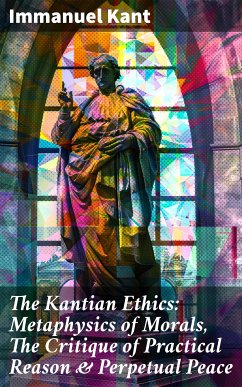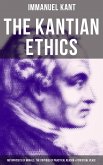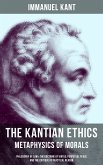Immanuel Kant'Äôs "The Kantian Ethics: Metaphysics of Morals, The Critique of Practical Reason & Perpetual Peace" intricately weaves together the foundational principles of his moral philosophy. Kant's works present a rigorous exploration of normative ethics grounded in the notions of duty and the categorical imperative, prompting readers to consider moral law as inherently universal and absolute. Through meticulous argumentation, he critiques prior ethical systems, establishing a unique moral framework that fosters autonomy and rationality, while also envisioning a path to everlasting peace through moral governance in international relations, as articulated in "Perpetual Peace." Kant, a luminary of the Enlightenment and a pivotal figure in modern philosophy, was profoundly influenced by the tumultuous sociopolitical landscape of 18th-century Europe. His background in rationalist and empiricist traditions informed his critical approach, enabling him to challenge prevailing ethical doctrines and articulate a novel conception of moral obligation. His commitment to reason, autonomy, and universal ethics mirrors his lifelong pursuit of knowledge and enlightenment, often reflecting on the human condition and society's moral progress. This compilation is essential for scholars and students of philosophy, as it not only elucidates Kant's ethico-political theories but also inspires contemporary ethical discourse. Readers seeking a transformative understanding of moral reasoning are encouraged to engage with Kant's profound insights, which remain relevant in navigating ethical dilemmas today.
Dieser Download kann aus rechtlichen Gründen nur mit Rechnungsadresse in A, B, BG, CY, CZ, D, DK, EW, E, FIN, F, GR, H, IRL, I, LT, L, LR, M, NL, PL, P, R, S, SLO, SK ausgeliefert werden.









